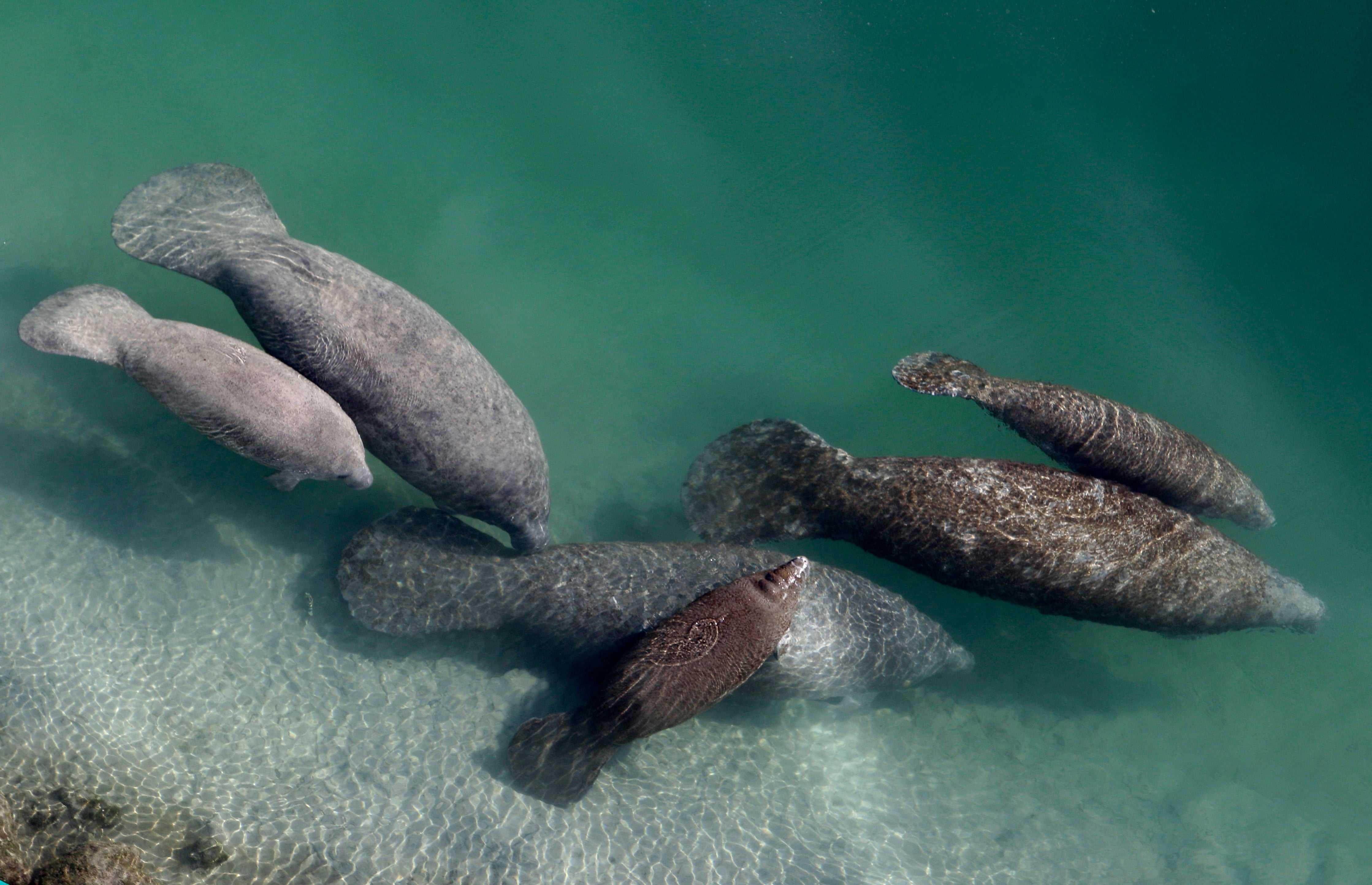Florida manatees facing starvation fed through program
Along Florida’s East Coast, threatened manatees that are facing starvation are fed through an unprecedented program started last year

Your support helps us to tell the story
From reproductive rights to climate change to Big Tech, The Independent is on the ground when the story is developing. Whether it's investigating the financials of Elon Musk's pro-Trump PAC or producing our latest documentary, 'The A Word', which shines a light on the American women fighting for reproductive rights, we know how important it is to parse out the facts from the messaging.
At such a critical moment in US history, we need reporters on the ground. Your donation allows us to keep sending journalists to speak to both sides of the story.
The Independent is trusted by Americans across the entire political spectrum. And unlike many other quality news outlets, we choose not to lock Americans out of our reporting and analysis with paywalls. We believe quality journalism should be available to everyone, paid for by those who can afford it.
Your support makes all the difference.Along Florida's East Coast, threatened manatees are fed and offered supplies through an unprecedented program that tackles the recurring, pollution-related starvation crisis, wildlife officials said Wednesday.
With winter approaching and water temperatures dropping, a program that feeds lettuce to the marine mammals at a warm-water power plant near Cape Canaveral enters its second year.
“Now is the time for things to start ramping back up,” said Jon Wallace of the U.S. Fish and Wildlife Service during an online news conference. “If we have a significant event this year, which we are hoping we won't have, we'll be ready for that.”
The second year of the feeding program comes after a record 1,101 manatee deaths in 2021, mostly due to starvation as pollution from farm, urban and other sources decimates the seagrass on which the animals depend. So far this year, 765 manatee deaths have been confirmed through Dec. 9.
There are between 7,000 and 8,000 manatees in Florida, according to state estimates. Manatees can live up to 65 years, but they reproduce slowly.
Last year, about 202,000 pounds (91,600 kilograms) of lettuce was fed to manatees at the Cape Canaveral site.
The initial shipments of romaine and butterleaf lettuce — most donated by growers or funded by contributions —will be at the feeding site Thursday, said Ron Mezich of the Florida Fish and Wildlife Conservation Commission.
Although the effort has mobilized resources along Florida's Atlantic Coast, Mezich said the only feeding will take place at this key site where thousands of manatees congregate during cold months. Once water reaches about 68 degrees Fahrenheit, manatees begin seeking warmer places near springs, power plants and other locations.
“This is the largest warm-water site in this area. Almost all animals know it and will visit it at some time,” he said. “We are prepared to continue these efforts at least for the short term.”
Manatees, which are related to elephants, have long struggled to coexist with humans. Dozens are injured and sometimes killed by boat strikes; almost any adult manatee bears some scars from boats.
But starvation is the gravest threat they have faced in recent times. Several state-funded projects are ongoing to restore the vital seagrass, but environmental groups say that human-caused pollution that must be curbed for a more permanent solution.
A petition filed with the U.S. Fish and Wildlife Service last month contends it was an error to take manatees off the endangered list in 2017, leaving them listed only as threatened. The big, slow-moving creatures had been listed as endangered since 1973.
Amid those long-term efforts, wildlife officials say one key to the Florida feeding program is to prevent manatees from associating people with food. Extra precautions are taken to ensure that lettuce simply appears at the site, Mezich said.
“It looks like a gift from heaven rather than a hand from a person. We don't want to change behavior,” he said.